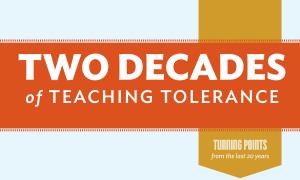author
5,299 Results
article
Reminding Students of America’s Diverse Beauty
This week as the 10th anniversary of 9/11 approaches, I plan to gather my third-, fourth- and fifth-graders around me. I will tell them, "Our country is a beautiful place." I’ll keep this in mind as I think of the moments when we were clearly afraid.
article
The Age of Innocence in a 9/11 World
Each year, as the anniversary of 9/11 approaches, I feel a twinge of trepidation. My students don’t remember that horrible day. It’s not on their radar. I struggle with balancing wanting to honor those who lost their lives and the heroes of that day with the need to respect the innocence and hope of my students. Reconciling these conflicting emotions is always tricky.
article
article
What We're Reading
For rural schools, the growing use of technology can create new problems as it solves old ones.
article
author
author
author
author
